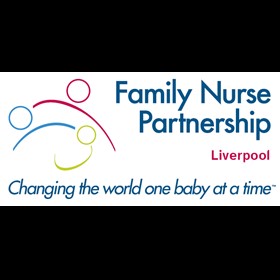Reflections of a supervisor
"As one of the 18 FNP trial sites, Liverpool's Family Nurse Partnership Supervisor, Ruth Taylor, offers an open and honest reflection of the team’s initial reaction to the trial findings. Her blog also illustrates powerfully the work family nurses do to successfully support early child development. I know from seeing this work in action that one of the particular skills family nurses have is their ability to transform the complex and specialised clinical approaches they learn in FNP training into a supportive and enjoyable session with a young mum, her baby and often other family members too. This is what I call art."
Join the conversation on Twitter:@FNPNationalUnit
Ailsa Swarbrick, Director, FNP National Unit
------------------------------------------------------------
Ruth Taylor, FNP Supervisor, Liverpool
I joined the Family Nurse Partnership (FNP) as a family nurse in 2009, having previously been a health visitor for five years. A year later I became the supervisor and worked with my team of family nurses and a quality support officer to build a strong supportive FNP team that could deliver the programme to young mums with confidence, skill and compassion.
Liverpool FNP was one of the sites that took part in the recent Building Blocks trial. As you can imagine, the report was a challenging read for the team, particularly for those of us who were involved from the beginning of the trial. Since the report was published, we have spent time together as a team reflecting on the findings and talking individually about the ‘responsibility’ some of our family nurses felt for the final outcomes. It's been a difficult time but we’ve taken a practical approach. We’re reviewing our skills and thinking deeply about how we present FNP to stakeholders. We now feel more confident in being able to articulate what FNP does so well, i.e. the high level of engagement with the young mothers we support.
The role of the supervisor is wide and varied. As well as being the 'guardian of the FNP license', it’s a privilege reflecting with each family nurse on the work they do with young mums to support them to be the best parents they can be.
The short case study below illustrates how the family nurses in my Liverpool team use their communication skills and strength-based approach to work with these young women who often have complex lives with varying degrees of need and vulnerabilities.
Recently, a family nurse described to me how she had had a difficult conversation with one young mum. The discussion was about how she could support and encourage her child’s development. This particular young mum had been in care as a child, had left school in year nine aged 14, and as a result, was finding it difficult to play with her child, often using the television as a way to entertain her toddler. Because of this lack of positive interaction, the child was not meeting milestones in problem solving, for example dropping blocks into a container and mark making. Together, the family nurse and mum looked at a PIPE (Partners in Parenting Education) activity, which is designed to help mums develop play communication skills. They drew up an action plan to support the toddler and develop his problem solving skills.
At the next home visit, mum proudly showed her family nurse the progress her toddler had made by encouraging him to stack two blocks and find a hidden toy under a beaker. She told her family nurse how she had been to the local children's centre for the first time and borrowed some age appropriate toys from the toy library for her and her child to play with. The family nurse used an observational tool called ‘DANCE’ (Dyadic Assessment of Naturalistic Caregiver-child Experience) to assess the interaction between mum and child, which showed many strengths. The family nurse will feedback and affirm mum’s excellent progress during her next visit, which will hopefully boost her confidence.
Creating a learning culture and environment is a crucial part of my role and central to the ethos of our team. We all value having the space to reflect and practice our skills as we find this builds our confidence and expertise when delivering the programme. FNP is unique, and we always focus on strengths, both in our mums and our family nurses.
